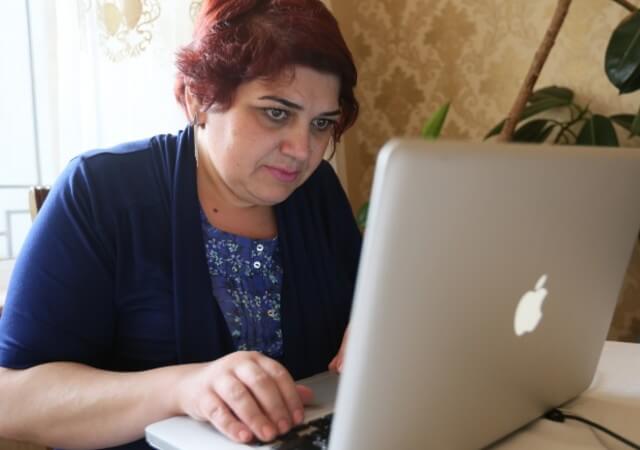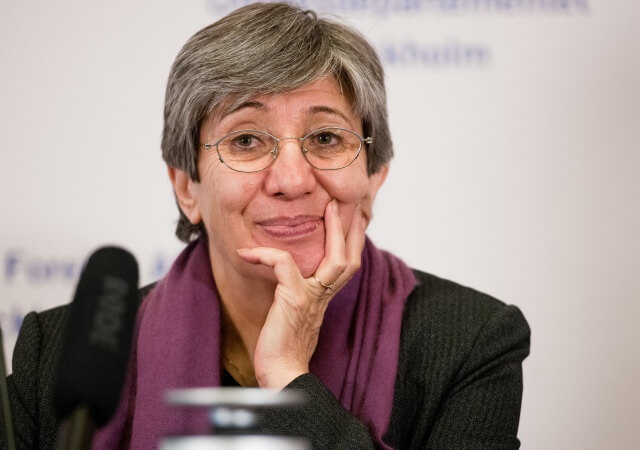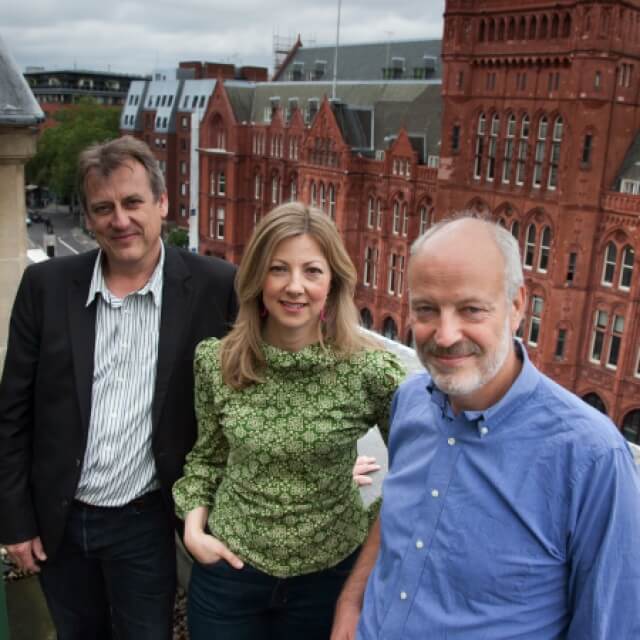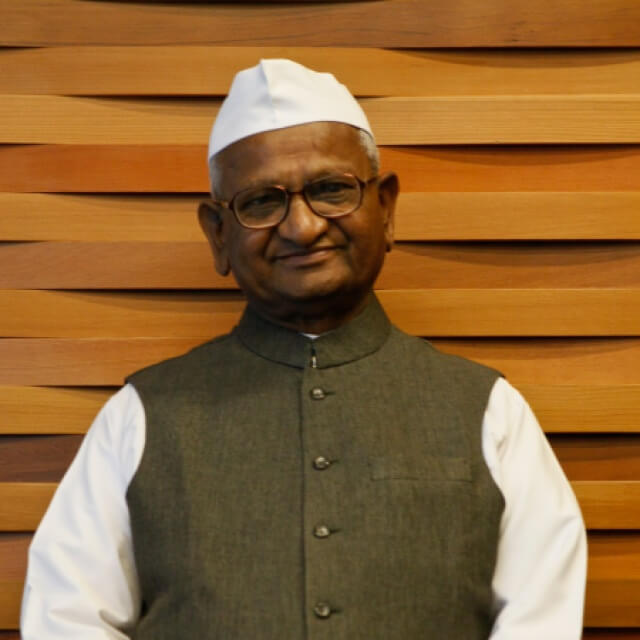Khadija Ismayilova

As an investigative journalist in Azerbaijan, Khadija Ismayilova is well-known for challenging corruption and misuse of power at the highest levels of government. Working with Radio Free Europe and the Organized Crime and Corruption Reporting Project (OCCRP), Khadija has won numerous press-freedom awards and international acclaim for her investigative reporting in a country known for exercising strict control over its media. In 2010, Khadija and a colleague uncovered evidence of illegal privatization of the state owned bank by the president’s daughter. In 2011, she exposed Panamanian companies, owned by the president’s daughters, who used them to hide their privileged interests in the country’s communications sector. Her subsequent investigations detailed the family’s control over $2.5 billion worth of gold and silver at Azerbaijan’s Chovdar mine, and numerous other hidden holdings by the president’s daughters ranging from banking to transportation. In 2012, Khadija worked with two Czech journalists to uncover foreign companies and luxury real estate held by a number of high-ranking Azerbaijan officials and their families, an investigation that provided a rare public glimpse into the rampant corruption in Azerbaijani politics, even prompting the National Assembly of Azerbaijan to change its disclosure laws to hide from further inquiry. Khadija’s stories earned her investigative reporting awards in 2010 and 2011 from Radio Free Europe/Radio Liberty, where she had served as the chief of Baku Bureau from 2008 to 2010. But her tireless search for truth made her some powerful enemies. In 2012, she was blackmailed by someone who had placed a video camera in her home and threatened to publically humiliate her if she didn’t “behave.” She refused to be silenced, so the video footage of her intimate life was published. When the government’s investigation of the blackmail was deemed inconclusive, Khadija commenced her own investigation and established that state agencies had wired her apartment. In 2013, she was arrested for an unsanctioned protest and sentenced to 220 hours of sweeping the streets (something she said pleased her, because she was used to “clearing this country of rubbish”). In 2015, Khadija was given a 7.5-year prison sentence for a list of financial crimes the government had fabricated to silence her, inspiring her colleagues at the OCCRP to start the “Khadija Project” to finish her investigative reporting projects. Following outcry from the international community — including Reporters Without Borders, the U.S. Department of State, and Amnesty International — Khadija was released on probation in 2016 and remains under a travel ban until 2021. She continues to fight against human rights abuses and corrupt practices in government, and her courage and leadership have earned her broad popular support, inspiring a new age of political activism in Azerbaijan. In 2017, Khadija was involved in the Azeribaijani Laundromat investigation, which exposed a slush fund of over 2.5 billion euros used by members of Azeribaijan’s government to pay off European politicians, buy luxury goods, launder money, and otherwise benefit themselves. What are your thoughts on being selected as a finalist for the Allard Prize? “Being selected as a finalist for this prize was a surprise to me. For me it is an acknowledgement of the struggle journalists and activists in Azerbaijan carry out day by day to expose corruption. Azerbaijan is a country where corruption is endemic, and corrupt officials enjoy impunity. Our stories do not lead to criminal investigations against corrupt officials, because as my investigations exposed, those who are on the top of the system are also leading the main corruption schemes. My hope is that one day we will have [a] strong enough society to demand justice in all corruption cases, including for those in the highest positions of the hierarchy. Writing and exposing corruption is not enough. We need to engage local and international legal mechanisms to make our exposures more meaningful. [The] Allard Prize might help me to start one of these initiatives.” What inspires you to do the work that you do? “Those who expose it are subject to all kinds of harassment. I didn’t pay the highest price – Elmar Huseynov, [a] journalist, assassinated in 2005 did. My share of “punishment” was a blackmail-and-arrest smear campaign by the government officials. Nevertheless I do not regret, because I am happy to see that despite all the troubles our work can bring, there are [a] number of younger journalists who want to do the same. Some of them do it anonymously because of the threats of being arrested, beaten or blackmailed. They are my inspiration. I dedicate this acknowledgement to my students and colleagues – to journalists, who investigate and expose corruption openly or anonymously despite threats.”
Indonesia Corruption Watch

In a country where political and judicial corruption makes daily headlines, organizations like Indonesia Corruption Watch (ICW) have been critical in providing political pressure for policy reform, transparency, and accountability of government. Since its inception in 1998, ICW has been focused on bringing cases of corruption to law enforcement agencies, monitoring campaign and political finance spending in national and local elections and pushing for improved anti-corruption laws such as the Freedom of Information Act, the Whistleblower Protection Act, Anti-corruption Act and Election Act. Using research and evidence-based advocacy, ICW has brought incidences of corruption to the limelight – sometimes at great personal risk. In 2009, ICW researchers Emerson Yuntho and Illian Deta Arta Sari uncovered a sizable discrepancy in the amount of revenue recovered by the Attorney General’s Office in corruption trials and the amount the AGO deposited into government accounts. Shortly after these findings became public, the AGO charged Yuntho and Sari with defamation under an Indonesian law that makes it illegal to insult a government institution. The charge carries a maximum penalty of 18 months in prison. Public pressure helped in halting the arrest of the two researchers, although the charges were never formally dropped. Through rigorous research, outspoken leadership, and personal courage, ICW has played an important role in pushing forward the difficult but essential progress towards accountability in Indonesia. What are your thoughts on being selected as a Finalist for the Allard Prize? “The anti-corruption movement in Indonesia is facing difficult times due to political and judicial pressure. The recognition of our work is a reminder for us that we are not alone in fighting corruption. We hope that this award will introduce ICW’s work to others around the world that are also struggling to create integrity within their society, so that we can work hand in hand for a better world.” What inspires you to do the work you do? “Corruption makes people suffer. It is the root of development problems. Development efforts to alleviate the disadvantaged such as the poor, the disabled, women and children have not reached their goals due to corruption. The authorities steal development funds for their own interest. Therefore, ICW focuses its work on research, investigations and campaigns and provides civil society with the capacity to participate in public decision-making processes and monitor the transparency and accountability of development implementation. ICW works to make the peoples’ voice heard by the decision maker.”
Sergei Magnitsky

After exposing a $230 million tax fraud involving organized criminal groups working with Russian police and other government officials, Sergei Magnitsky was arrested and imprisoned for over 11 months in pre-trial detention. His arrest and subsequent in-prison death garnered the attention of international government bodies, parliaments and human rights organizations. Mr. Magnitsky uncovered the tax fraud while working for a Moscow-based law firm. The grounds for which he was arrested were fabricated in order to halt further investigation into the fraud case which he had uncovered and exposed. In 2009, after nearly one year in prison, during which time he was tortured to retract his testimonies, Mr. Magnitsky developed health complications for which he was given inadequate medical treatment and he finally died at the age of 37 after having been beaten by riot police with rubber batons. This incident brought international attention to corruption and human rights violations in Russia and resulted in the adoption of the Magnitsky Act by the US Congress in 2012. The Magnitsky Act enables the US to withhold visas and freeze financial assets of Russian officials thought to have been involved in the financial crimes which Magnitsky exposed, as well as those involved in his false arrest, torture and death in custody. If Mr. Magnitsky was with us today, how do you think he would have responded to this recognition? (Comments provided on behalf of the Magnitsky family) Sergei would have been so proud and humbled by this nomination. He always strived to live his life in the best possible way, with honesty and integrity. Six years after his untimely and heartbreaking death, it is awards such as this that keep Sergei’s memory alive. Being nominated for the Allard Prize gives his whole family a huge sense of pride and once again asserts that his life was not sacrificed in vain. Our whole family is immensely grateful for the attention this award will give to the global Magnitsky justice campaign which emerged from our tragedy. Why do you think Mr. Magnitsky did what he did? (Comments provided on behalf of the Magnitsky family) Sergei was so outraged by the theft of $230 million dollars of taxes which should have gone to state recipients like pensioners, schools, the disabled, and hospitals, that he stood up in the belief that truth and justice would prevail. Others might have backed down in the face of the immense pressure he was subjected to, but he did not. That would have meant compromising his own integrity and sense of honesty and he could never do that. He believed that he was acting for the greater good of his country and fellow citizens. He wanted to be a shining example to his colleagues, friends and family.
John Githongo & Rafael Marques de Morais

John Githongo and Rafael Marques de Morais are the 2015 Co-recipients for the Allard Prize for International Integrity. Mr.Githongo and Mr. Marques de Morais have both demonstrated exceptional courage and leadership in combating corruption. Here are their stories. John Githongo His fight against corruption and towards political transparency in Kenya has made international headlines and has garnered the attention of world leaders. In 2004, John Githongo was responsible for exposing a $1 billion corruption scandal within the very administration that had hired him to serve as their permanent secretary for government and ethics. The scandal implicated former Kenyan president Mwai Kibaki and several senior politicians. Fearing for his safety, this courageous leader and former correspondent for the Economist ultimately resigned from the president’s office and moved to the United Kingdom, where he lived in exile. In 2008, Mr. Githongo returned to Kenya and founded Inuka Kenya Trust, a grassroots advocacy group aimed at creating an informed citizenry. The organization works with Kenyan youth to provide civic education and address societal problems. His anti-corruption advocacy also led to the launching of a campaign called Kenya Ni Yetu (Kenya is Ours). The campaign mobilizes ordinary people to speak up against corruption, impunity and injustice. In 2011, Mr. Githongo was selected as one of the world’s 100 most influential Africans by New African magazine and one of the world’s top 100 global thinkers by Foreign Policy magazine. What are your thoughts on being selected as a Finalist for the Allard Prize? “Being selected as a finalist for the Allard Prize is a humbling honour. In my community we have a saying, “Ciamuingi ikuuaguo na mugoto” – the public’s concerns are carried using the dried strands of banana leaves. This is because they are always heavy and the task of carrying them thankless. Dried banana leaf strands break easily and ensure the load – because the public load is always heavy – doesn’t injure your back. That the Allard Prize exists demonstrates recognition of the importance of service delivered wholeheartedly unencumbered by self-interest.” What inspires you to do the work that you do? “Ordinary citizens don’t allow me any other vocation! I am the happy hostage in this sense. There is no worse theft than that of a people’s dreams. It leaves in their place apathy, cynicism, self-destructive anger and despondency. There is no greater joy, privilege and honour than watching the sparkle in the eye of an individual who has realized they have been served. In turn, nothing gives me greater joy than being treated with dignity and honesty in the performance of a public service in particular.” Rafael Marques de Morais Prominent Angola-based journalist and human rights activist, Rafael Marques De Morais has dedicated his career to exposing corruption in his home country. In 1999, De Morais was arrested and charged with abuse of the press for an article he published that criticized Angolan president José Eduardo dos Santos, who claimed “injury” over the piece. The article, published in the weekly magazine Angola, pointed to the president as destroying Angola and promoting “incompetence, embezzlement and corruption as political and social values”.De Morais was held in prison for forty days without charges and was not permitted to contact his family or lawyer. Ultimately, he was found guilty and sentenced to six months’ imprisonment. After much pressure and support from international organizations, including the Open Society Institute and the U.S.-based Committee to Protect Journalists, the Supreme Court changed De Morais’ sentence to a suspended sentence. Most recently, Mr. Marques De Morais has been the subject of a defamation lawsuit resulting from his 2011 book, Blood Diamonds: Corruption and Torture in Angola. The book describes the killing and terrorizing of villagers by private security companies and Angolan military officials in the diamond fields of the Lundas region. Despite threats to his life, lawsuits and an unjust prison detainment, De Morais continues to write extensively on the trade of conflict diamonds, army brutality and corruption in the oil industry in Angola. In 2008, he founded Maka Angola – an anti-corruption watchdog, through which he has become the authoritative voice on corruption in his country. What are your thoughts on being selected as a Finalist for the Allard Prize? “It is a boost for my work, and an important break in my isolation and regular harassment. It also provides a ray of hope for Angolans who believe in the importance of exposing corruption as a criminal offense and the main scourge of society.” What inspires you to do the work that you do? “I have a dream too: I would like to bear witness and contribute to the sustainable human development of my fellow countrymen and countrywomen. Nature has blessed us with a beautiful country and such cheerful people, but bad governance and corruption keep undermining the future of both.”
Dr. Sima Samar

Dr. Sima Samar is an internationally celebrated advocate for human and women’s rights. Dr. Samar has worked to raise global awareness about the detrimental impact of corruption on the promotion and protection of Afghan human and women’s rights. Quote on being selected as an Allard Prize Finalist, Dr. Samar said: “It is of course a pleasure and honour for me to be on the short list for the Allard Prize. In fact, it is the recognition of my struggle in a country like Afghanistan; recognition of the women who survive watching the loss of their loved ones and the destruction of their property and country. It gives me courage to continue the struggle and also provides security, as my life is in danger daily.”
Global Witness

Established in 1993 and based in London, U.K. and Washington, D.C., Global Witness has initiated trailblazing campaigns against natural resource-related conflict and corruption and associated environmental and human rights abuses. Quote on being nominated for the Allard Prize, Global Witness provided the following comment: “At Global Witness we apply courage and a relentless approach in our efforts to tackle corruption and to promote transparency. Becoming a finalist for the Allard Prize will help endorse our standing amongst international policy makers, governments and academics, and in consequence help to ensure that our recommendations are listened to and bring about lasting change.”
Anna Hazare

Anna Hazare is one of India’s most renowned social reformers. Mr. Hazare had led successful movements to advance rural development, enhance government transparency and investigate and prosecute official corruption. He has also played a leading role in educating people in India about their fundamental rights and encouraging them to raise their voice against unlawful practices like corruption. Mr. Hazare began his path to promote human rights by dedicating himself to improving conditions in the rural Indian village where he was born, Ralegan Siddhi. Mr. Hazare has campaigned tirelessly for transparency on state and national levels. In 2003 he led a movement that successfully influenced the Maharashtra state government to enact a revised Maharashtra Right to Information Act, which became the basis for the Right to Information Act later adopted by the national government. In 2011, he led a national apolitical movement dedicated to eradicating illicit practices across India.That same year he led a series of hunger strikes and successful massive public demonstrations to urge Indian legislators to adopt legislation to create an independent ombudsman body with the power to investigate any public official. In his words, “I have dedicated my life in the service of the people. I believe, service to humanity, is in real sense, the worship of god.” Upon being awarded the Allard Prize, Mr. Hazare said: “My life-long mission to fight corruption and promote transparency is stronger for having received this award. I have never been attracted to money and wealth, but the Allard Prize will help me and all those that are working towards the same cause to continue the fight. I am hopeful that this international recognition will promote a movement for change that will endure beyond my lifetime for generations to come.”

